September 2015
A view (44)
2 September 2015, around 11.20.
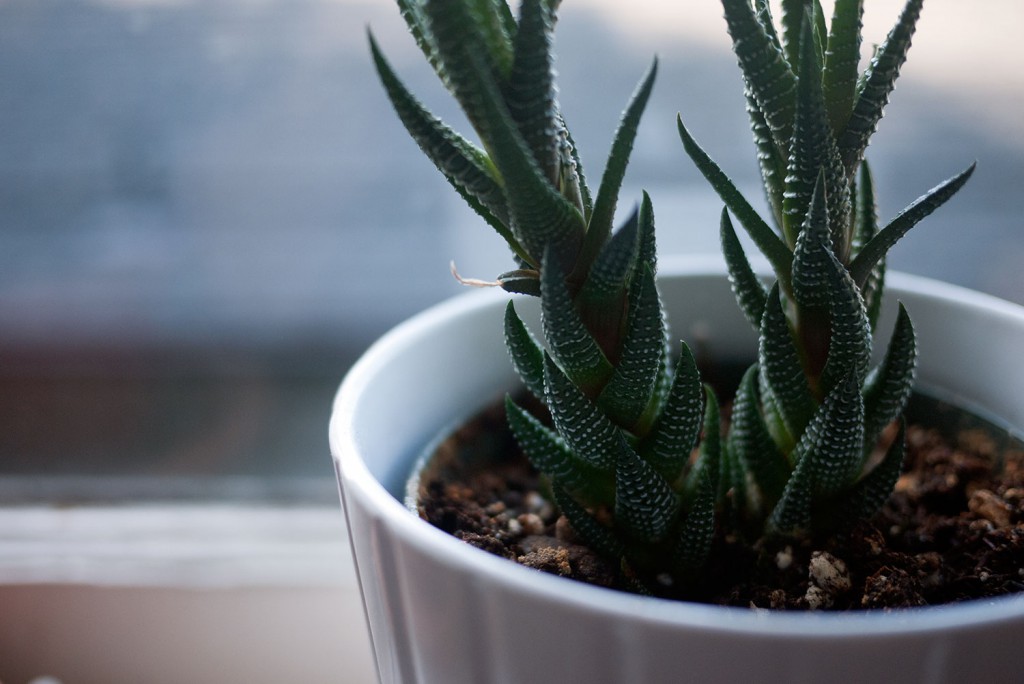
The new apartment is shaping up nicely, but the view lacks some of the drama or interest of older vistas. Perhaps time will provide a new perspective.
Montaigne 1.34
4 September 2015, around 8.59.
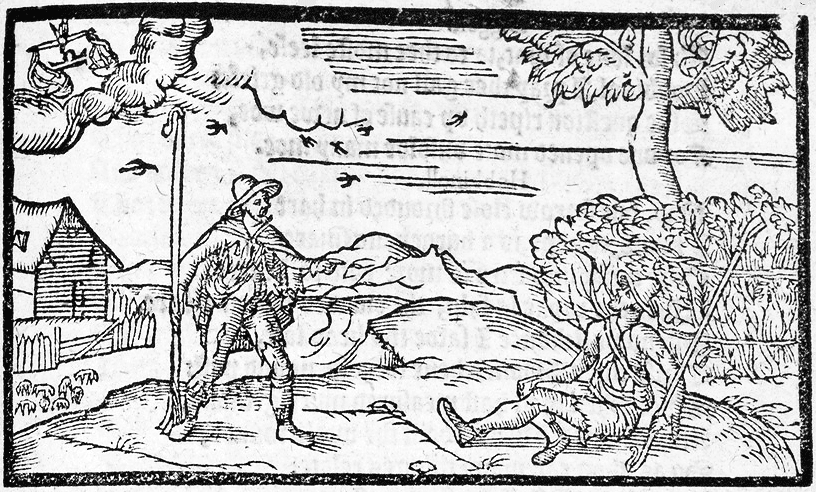
Illustration to Spenser’s Shepheardes Calender
Montaigne presents an odd selection of (mis)fortunes to illustrate the precarious role of fate in the lives of men (and women). A pope mistakenly poisoned; a bridegroom captured in a tourney before his wedding night; a father and son condemned to death, killing each other to cheat the executioner’s sword; all these suggest the darker side. But the man with an abscess in his chest who, given up for dead by his doctors, charges into battle, where a fortuitous injury lances the abscess and saves his life, or the painter who, frustrated with his inability to perfect a painting of a dog, throws his sponge at the artwork, thus creating the desired effect by happenstance that he could not achieve by art – these suggest that only by giving up all hope can one achieve even a hint of salvation. In any case, it brought to mind Hardy’s cheerless poem:
If but some vengeful god would call to me
From up the sky, and laugh: “Thou suffering thing,
Know that thy sorrow is my ecstasy,
That thy love’s loss is my hate’s profiting!”Then would I bear it, clench myself, and die,
Steeled by the sense of ire unmerited;
Half-eased in that a Powerfuller than I
Had willed and meted me the tears I shed.But not so. How arrives it joy lies slain,
And why unblooms the best hope ever sown?
—Crass Casualty obstructs the sun and rain,
And dicing Time for gladness casts a moan….
These purblind Doomsters had as readily strown
Blisses about my pilgrimage as pain.
a ramble
6 September 2015, around 8.38.
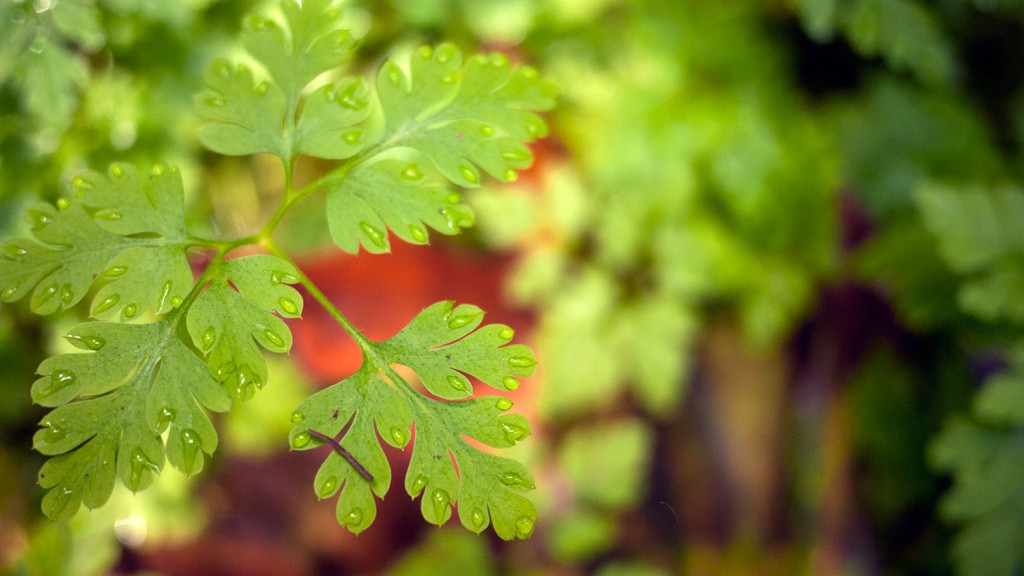
Now Reader, don’t go making trouble fixing names to all this. I say thereଁs not a person nor a thing in this book that ever stepped outside of this book. It’s all out of my head. And don’t go looking like a sick cat for wicked envy, it’s a thing you might come to yourself: if you’d got the sort of head I have. And don’t get despairing either. Remember what they said in the thirteen hundreds: ‘Accidie poisons the soul stream’.
It was simple to think of things to write here while I was out for a walk. The actual writing, however, proves troublesome.
Montaigne 1.35
11 September 2015, around 6.37.
In this Oeconomicke or houshold order my father had this order, which I can commend, but no way follow : which was, that besides the day-booke of houshold affaires, wherein are registred at least expences, paiments, gifts, bargains and sales, that require not a Notaries hand to them, which booke a receiver had the keeping of: he appointed another journall-booke to one of his servants, who was his clerke, wherein he should insert and orderly set downe all accidents worthy the noting, and day by day register the memories of the historic of his house: A thing very pleasant to read, when time began to weare out the remembrance of them, and fit for us to passe the time withall, and to resolve some doubts: when such a worke was begun, when ended, what way or course was taken, what accidents hapned, how long it continued; all our voyages, where, and how long we were from home; our marriages, who died, and when; the receiving of good or bad tidings, who came, who went, changing or removing of houshold officers, taking of new, or discharging of old servants, and such like matters. An ancient custome, and which I would have all men use and bring into fashion again in their severall homes: and I repent my selfe, I have so foolishly neglected the same.
Crambe repetita (40)
15 September 2015, around 12.46.
At the speed of the spreading sunset
croquettes in the back of the butcher shop
fry a golden brownChinese cabbages with red sashes
side by side at the shopfront
preening and titteringAs if covered all over with
little-girl fingernails
sea bream shine at the fish shopIn the middle of the night
canned green peas
whisper ‘open up, open up’Amid the pale blue of small bills
cabbages are laughing—
here in Twilight Alley
Montaigne 1.36
18 September 2015, around 10.02.
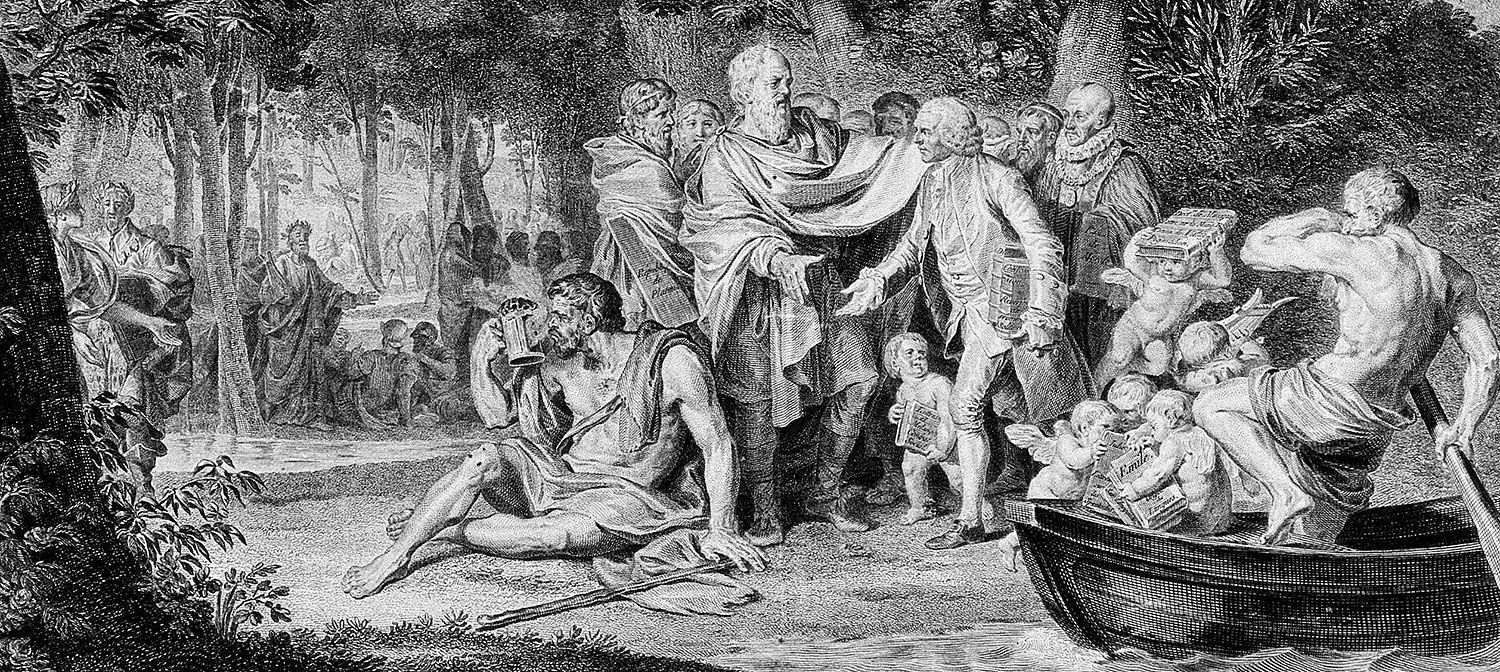
Men in various clothes, ca. 1782, from the Wellcome Collection
Now, all things being exactly furnished else-whence with all necessaries to maintaine this being, it is not to be imagined that we alone should be produced in a defective and indigent estate, yea, and in such a one as cannot be maintained without forrain helpe. My opinion is, that even as all plants, trees, living creatures, and whatsoever hath life, is naturally seene furnished with sufficient furniture to defend it selfe from the injurie of all wethers…
While making less of clothing than, say, Carlyle, Montaigne does use clothing for his own ends, as a great equalizer because a matter of custom rather than nature. The fruit trees of Alexander, wrapped up for the winter, are somewhat a surprise, but no more so than any other of Montaigne’s oddities.
Montaigne 1.37
25 September 2015, around 18.02.
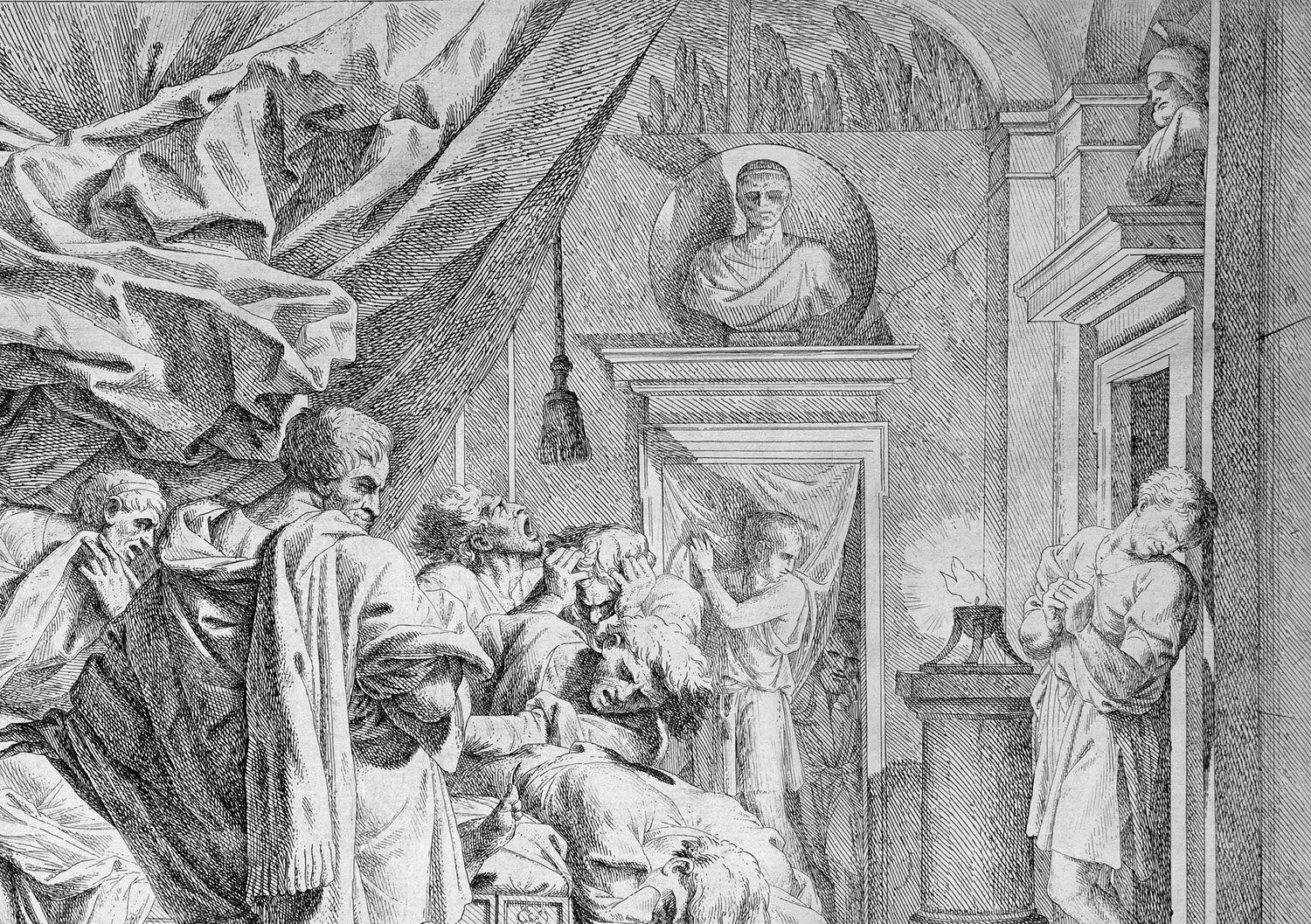
‘Death of Cato’ by Pietro Testa (1648)
Loe, here are wonders, we have more Poets than judges and interpreters of poesie. It is an easier matter to frame it than to know it: Being base and humble, it may be judged by the precepts and art of it: But the good and loftie, the supreme and divine, is beyond rules and above reason. Whosoever discerneth her beautie, with a constant, quicke-seeing, and setled looke, he can no more see and comprehend the same than the splendor of a lightning flash. It hath no communitie with our judgement; but ransacketh and ravisheth the same. The furie which prickes and moves him that can penetrate her, doth also stricke and wound a third man, if he heare it either handled or recited, as the adamant stone drawes not only a needle, but infuseth some of her facultie in the same to draw others…
